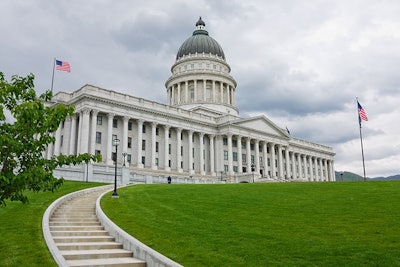
Utah has become the 32nd state to legalize medical marijuana with the passage of Prop. 2 in the Nov. 6 midterm election.
The measure, backed by the Utah Patients Coalition, passed 53-47 with 76 percent of precincts reporting, according to Ballotpedia on Nov. 7.
The vote comes ahead of a proposed special legislative session to address the specific rules and regulations that will govern the state’s medical marijuana program.
“Congratulations to the voters of Utah,” said BioTrackTHC CEO Patrick Vo. “Even though Prop. 2 passed, the preemptive action by Gov. Gary Herbert and lawmakers to create medical cannabis legislation shows Utah’s top officials have recognized the real need to create a commonsense regulatory system for medical cannabis. Tight regulations that include tracking products from seed to sale are paramount to patient safety, to ensuring products aren’t diverted to illicit markets, and that only patients who are part of the state program receive the medicine they need.”
“It is our hope that Utah’s politicians will respect the will of the electorate and move swiftly to enact The Utah Medical Cannabis Act in a manner that comports with both the spirit of the law and the letter of law,” added NORML Political Director Justin Strekal, in a public statement.
RELATED: Utah Voters to Decide on Legal Medical Marijuana This November
The initiative faced plenty of opposition leading up to the election, with the Church of Jesus Christ Latter Day Saints coming out against the measure earlier this year. The Church the released a seven-page memo describing the “legal issues” surrounding the ballot initiative and outlining 31 reasons for its opposition of the effort.
In addition, Drug Safe Utah sued Utah Lt. Gov. Spencer Cox in May, compiling a long list of arguments about why the ballot initiative should not be approved. Cox and the Utah Patients Coalition asked a judge to dismiss the lawsuit in June, and Drug Safe Utah did drop the case in early July.
“Surprisingly, medical cannabis recently passed in the conservative state of Oklahoma, so it is not a huge shock that Utah, which is also historically conservative, is passing medical cannabis,” George Archos, CEO of Verano Holdings, told Cannabis Business Times. “Advocates’ efforts to educate people about cannabis’ benefits for health and wellness have gone a long way in creating an attitudinal shift toward acceptance. … Having limited licenses allows the state to get its feet [and] mirrors what Illinois has done successfully from a regulatory standpoint. A comprehensive medical program ensures solid product quality and consistency.”
Earlier this year, Utah passed a “right to try” law that allows terminally ill patients to access medical marijuana, but the regulations needed to implement the program are not expected to be finalized until next year. With the passage of Prop. 2, the program will be expanded, and a law will be established to allow patients with qualifying conditions access to medical cannabis with a recommendation from their doctor. The initiative also lays out a framework for licensing and regulating cannabis cultivators and dispensaries in the state, including restrictions on the location of these businesses.
“A win for cannabis is a win for civil rights; it’s a win for jobs creation and for people with illnesses best treated with cannabis products,” said Steve Gormley, CEO of International Cannabrands. “The U.S. electorate continues to push a pro-cannabis agenda and common-sense marijuana regulation.”
Top Image: © Andy | Adobe Stock
























